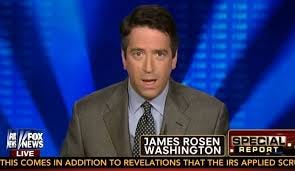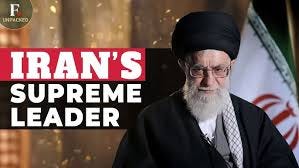How Obama Lied Us Into the Iranian Showdown
Aided by Journalists, said an Obama aide, who "literally know nothing.”
Pundits on the right might want to take a break from their heathy, if not exactly helpful, squabbling to remember how we got to where we are and who deserves the blame.
A useful starting date is July 14, 2015, the day United States signed on to the Joint Comprehensive Plan of Action, or, for our purposes, the Iran deal. President Barack Obama saw the deal as his signature foreign policy achievement and gave away the farm to secure it. In addition to lifting sanctions on Iran, the U.S. paid the Iranians $1.7 billion in cash.
Russian Prime Minister Vladimir Putin smiled approvingly. The New York Times noted Russia’s “lightning effort to capitalize on the deal.” The Russians had been indispensable, and they knew it.
As Obama told Tom Friedman of the New York Times, “We would have not achieved this agreement had it not been for Russia’s willingness to stick with us and the other P5-Plus members in insisting on a strong deal.” In July 2015, it was still respectable for an American president to cozy up to the soon to be monstrous but always opportunistic Putin.
Israeli Prime Minister Benjamin Netanyahu was not as pleased as Putin. Two years earlier, when the Iran deal was first put on the table, Netanyahu said, “What was concluded in Geneva last night is not a historic agreement, it’s a historic mistake.” As proposed, the deal would have Iran “taking only cosmetic steps which it could reverse easily within a few weeks, and in return, sanctions that took years to put in place are going to be eased.” For the next two years, as the administration maneuvered to seal the deal, Obama and his aides worked to neutralize those who might agree with Netanyahu.
James Rosen, then chief Washington correspondent for Fox News, felt the heat. Rosen had been on the White House hit list for years. In 2010, the Department of Justice used a search warrant to probe Rosen’s personal and professional communications. So invasive was the DOJ’s surveillance that it moved even the Washington Post, if not to condemn the action, at least to report it. “Search warrants like these have a severe chilling effect on the free flow of important information to the public.”
Undaunted, in December 2013, Rosen surfaced as the chief protagonist in the struggle to learn the truth about the impending Iran deal. Alone among White House correspondents, he had the effrontery to call out the administration on an obvious lie.
So rare were such challenges in the Obama years that several media outposts found the challenge more newsworthy than the lie. The headline of Josh Gerstein’s account in Politico read, “Fox reporter confronts State Department on Iran denial.” Although reasonably straightforward in his prose, Gerstein made no attempt to address the issue of why only one reporter found the White House’s mendacity troubling.
At an earlier press conference in February 2013, Rosen asked then State Department spokesperson Victoria Nuland about reports of “direct, secret bilateral talks with Iran.” Nuland answered, “With regard to the kind of thing you’re talking about on a government-to-government level: no.”
Ten months later, on December 2, 2013, a week after the Obama administration presented the impending nuclear deal to the American people, Rosen alerted the State’s new spokesperson, Jen Psaki, to reports that senior U.S. officials had, in fact, been holding meetings in Oman with Iranian officials over the previous two years. “The question today is a simple one,” asked Rosen, “when the briefer was asked about those talks and flatly denied them, that was untrue, correct?”
Psaki was cornered, and Rosen was not about to let her escape. He asked her if she stood by Nuland’s earlier denials of such meetings. As Psaki ducked and weaved, Rosen jabbed away at the nearly defenseless spokesperson. Was it, he asked, “the policy of the State Department to lie?”
When the truth came out that Rosen had been right all along, that senior U.S. diplomats had conducted at least five secret negotiations with Iranian officials in Oman’s capital of Muscat, the media decided that the administration’s deception was admirable. Said CBS News in a headline, “The Obama administration’s useful lie about Iran Talks.”
According to Obama advisor Ben Rhodes, it wasn’t all that hard to keep the media in line. In the spring of 2016, Rhodes was feeling his oats. As the wordsmith responsible for selling the Iranian nuclear deal, he felt cocky enough to welcome journalist David Samuels to the White House.
Rhodes and Samuels had much in common. Both were liberal Democrats from New York City, and both were writers by profession, Samuels a very good one. Although Samuels was not at all a conservative, the response to his Rhodes profile in the New York Times Magazine gave him a taste of what it was like to be one. Unlike the citizen journalist on the right, however, the author of a ten-thousand-word Times article could not simply be ignored.
From the left’s perspective, Samuels’s fatal flaw, in the words of a Village Voice critic, was a “creepy lack of bias.” Trusting Samuels’s liberal credentials, Rhodes threw open all the relevant White House doors. The one that most intrigued Samuels led to what Rhodes’s team called the “war room.” It was here that Rhodes, by all accounts Obama’s most influential foreign policy adviser, ran the “messaging campaign” that led to the successful completion of the Iran deal.
Despite a “startling” lack of real-world experience, Rhodes understood the way the media worked in the realm of foreign policy. Major newspapers used to have foreign bureaus, he said. They no longer did. “They call us to explain to them what’s happening in Moscow and Cairo,” he told Samuels.
“The average reporter we talk to is 27 years old, and their only reporting experience consists of being around political campaigns. That’s a sea change. They literally know nothing.”
A Rhodes assistant named Ned Price filled in the details. Among the reporters, Price explained, he and Rhodes had their favorites, their “compadres.” When Price shied from naming names, the observant Samuels shared his list of likely suspects. It included several “prominent Washington reporters and columnists who often tweet in sync with White House messaging.”
Price laughed in agreement. “I’ll give them some color,” he said of the named journalists, “and the next thing I know, lots of these guys are in the dot-com publishing space, and have huge Twitter followings, and they’ll be putting this message out on their own.” Rhodes handed Samuels even more rope.
“We created an echo chamber,” he boasted, answering a question as to why so many supportive arms-control experts popped up in the media. “They were saying things that validated what we had given them to say.”
What particularly troubled Samuels was that Rhodes routinely put messages into play that were either misleading or completely false. One such story was that Obama and his people began to engage with Iran only after moderates came to power in 2013. According to Samuels, that story was “largely manufactured for the purpose for selling the deal.” Even after Rosen blew a hole in the story, Rhodes and Obama continued telling it.
Indifferent to the fact that conservatives knew otherwise, Obama brazenly claimed the deal followed just “two years of negotiations.” Obama made this announcement in 2015. As Samuels noted, the “most meaningful part” of the negotiations began in 2012 and the preliminary negotiations a year before that.
The Obama White House entered these talks well before the moderates took power, and “power” in this case was an illusion. The Ayatollah Ali Khamenei had “handpicked” these alleged moderates, who did little more than provide cover for the nuclear deal. Rhodes preferred they turned out to be reformers, but, as he admitted, “We are not betting on that.” Rhodes made no bones, said Samuels, that his efforts represented “a potentially dangerous distortion of democracy.”
The media storm that followed was even more furious than the one that blew through ABC News after George Stephanopoulos challenged Obama during a 2008 primary debate about his friendship with Bill Ayers. Given his credentials, critics could not ignore Samuels, but they certainly could smear him.
In New York Magazine, for instance, Eric Levitz dug deep to produce an article titled, “10 Problems With That New York Times Magazine Profile of White House Aide Ben Rhodes.” Only ten? The problems ranged from Samuels thinking “Obama’s foreign policy is apocalyptically bad” to Samuels quoting “his own knowing chuckle.”
Samuels published a lengthy rebuttal in the Times. Its editors, he noted, “looked closely at every complaint leveled against the piece and … found absolutely nothing to correct.” A good liberal, Samuels took particular offense at the charge that he was a “neocon,” an accusation that had been “tweeted and retweeted by thousands of people.”
Samuels may not have noticed them before, but this time he got to see the Left’s firemen at work. They did their job much as Bradbury’s firemen did in Fahrenheit 451, but with tweets, not flames. “The story itself has vanished,” Samuels regretted, “replaced by a digital mash-up of slurs and invective.” Such was the state of journalism in the age of Obama.
Paid subscribers will receive a weekly installment of my book in progress, Empire of Lies: Big Media’s 30-Year War on Truth, 1994-2024. Sign up today!










Great stuff. Obama hated two people above all and tried to destroy them: Trump and Netanyahu.
Companion piece from 2023: "Obama and New Auschwitz" on my substack:
https://directorblue.substack.com/p/obama-and-new-auschwitz
Powerful metaphor comparing "the Left's firemen" setting truth ablaze with tweets to the firemen of Ray Bradbury's Fahrenheit 451 burning books! Always great writing by Jack Cashill.